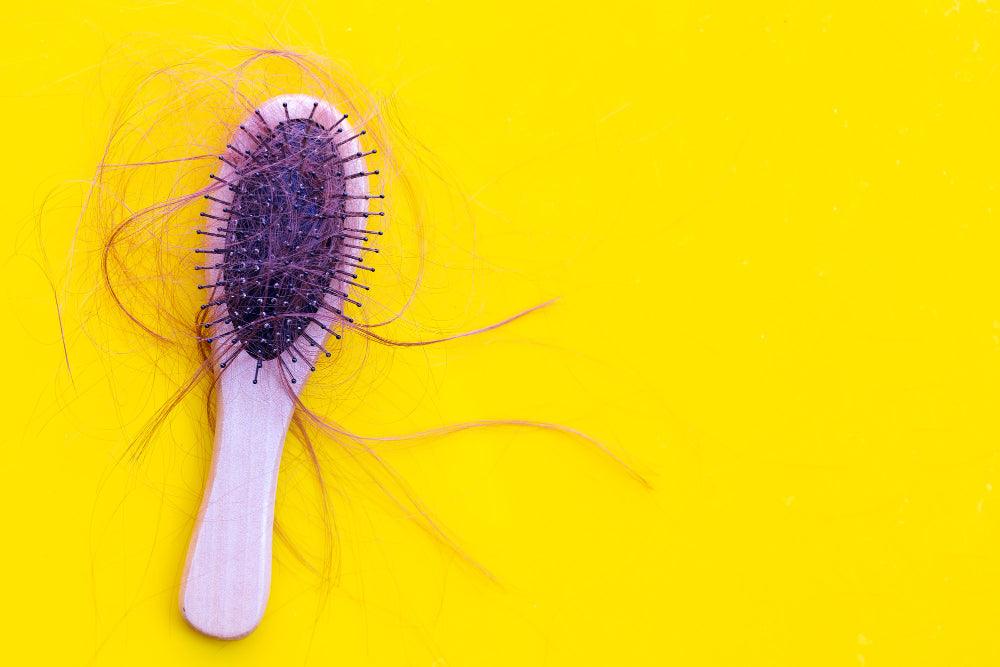Best hair loss treatment for females



It's no secret that hair loss is a common issue for women. In fact, it's estimated that around 40% of women aged over 70 in the UK suffer from female pattern hair loss or alopecia. While there are many different causes of hair loss, the good news is that there are also many different treatment options available.
So, if you're experiencing hair loss, don't despair – there is likely a treatment option that will work for you. In this blog post, we'll take a look at the best hair loss treatments for females.
We'll discuss the various causes of female hair loss and the different treatment options available. We'll also provide tips on how to choose the right treatment for you. So, if you're looking for information on the best hair loss treatments for females, read on!
The truth is, there are many possible explanations. Let’s take a look at a few of the most common ones.
Also known as androgenetic alopecia, is a type of hair loss that affects women. The condition is caused by a combination of genetic and hormonal factors, and it can lead to thinning hair and eventual baldness.
Although female pattern hair loss is more common in post-menopausal women, it can affect women of all ages.
There are several treatment options available, but the most effective way to combat the condition is to catch it early and take steps to prevent further hair loss.
One common cause of hair loss in women is a hormonal imbalance. A variety of factors can cause this problem, including pregnancy, childbirth, menopause, polycystic ovary syndrome (PCOS), and thyroid abnormalities.
Discuss possible treatments with your doctor if you suspect your hair loss may be caused by hormonal imbalance.
We all know that stress can wreak havoc on our bodies in all sorts of ways, and one of those ways is hair loss. When we’re stressed, our bodies go into “fight or flight” mode and divert all their energy away from non-essential functions like hair growth.
While some amount of stress-related hair loss is normal and will grow back in time, if the hair doesn’t return after a few months it may be time to see a doctor.
Find out if you suffering with symptoms of PCOS by using the Welzo PCOS Blood Test.
What we eat has a direct impact on our bodies, and that includes our hair. Diets that are low in essential nutrients like protein, iron, zinc, and vitamin A can lead to Nutritional Deficiency and Hair Loss.
This type of hair loss is usually accompanied by other symptoms like fatigue, dizziness, and brittle nails. If you think your diet might be the cause of your hair loss, talk to your doctor or a registered dietician about which foods you should be incorporating into your diet.

Thankfully, there are a number of different treatments available that can help stop hair loss in its tracks and even promote regrowth. Here are some of the best hair loss treatments for women.
Minoxidil is a topical medication that was originally developed for the treatment of high blood pressure. It was approved by the FDA for use as a hair loss treatment in 1988 and has been shown to be effective in slowing down or stopping hair loss in some women.
It's available over the counter in both liquid and foam formulations. Minoxidil is thought to work by increasing blood flow to the scalp and stimulating new hair growth. Common side effects include itching, redness, and dryness of the scalp.
Platelet Rich Plasma (PRP) injections are a newer treatment for hair loss that's becoming increasingly popular. PRP is derived from your own blood and contains growth factors that can stimulate hair growth.
Injections of PRP are thought to help increase blood flow to the scalp and promote the healing of the hair follicles. PRP injections have been shown to be safe and effective in both men and women.
Low-level laser therapy (LLLT) is a type of light therapy that uses low-level lasers or LED lights to stimulate hair growth. LLLT is thought to work by increasing ATP production, which leads to increased cell metabolism and ultimately, hair growth.
LLLT devices are available over the counter and have been shown to be safe and effective in clinical studies.
Birth control pills are commonly used to treat hormonally-induced hair loss in women. They can either be used alone or in combination with other treatments such as minoxidil. Oral contraceptives work by normalizing hormone levels, which can reduce or stop hair loss.
Possible side effects include weight gain, headaches, and breast tenderness. Note that oral contraceptives are not recommended for women who smoke cigarettes due to the increased risk of serious side effects such as heart attack and stroke.
Finasteride is an oral medication that's used to treat male pattern baldness. While it's not approved by the FDA for use in women, some dermatologists prescribe it "off-label" to female patients who are struggling with hair loss.
Finasteride works by blocking the production of DHT, a hormone that contributes to hair loss. Studies have shown that finasteride can help stop hair loss and even promote regrowth in some women.
Hair transplants are a surgical option for treating hair loss. During a hair transplant procedure, healthy hairs are transplanted from one area of the scalp (called the donor site) to the balding or thinning area (called the recipient site).
Alopecia areata, male-pattern baldness, and other types of hair loss can be treated with hair transplants. While hair transplants can be quite expensive, they offer a permanent solution for hair loss and can produce natural-looking results.
There are many possible causes of female hair loss, but thankfully there are also many treatments available. If you’re concerned about your hair loss, the best thing to do is speak with your doctor so they can help you determine the root cause and develop a treatment plan that’s right for you.
To discover more haircare tips visit the Welzo Hair Loss Treatment section.








Plus get the inside scoop on our latest content and updates in our monthly newsletter.